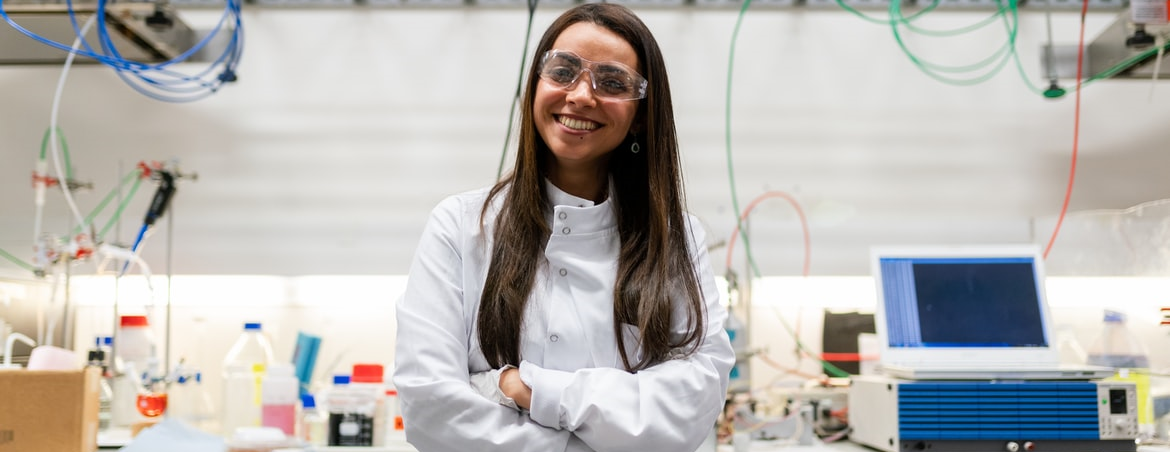

In March 2020, the World Health Organization (WHO) declared that humanity was entering a global pandemic phase. This unforeseen situation caught everyone unprepared and posed challenges for all the fields of knowledge, increasing the need for their interconnection.
With the instances of the novel coronavirus witnessing a rapid surge, medical organizations were under constant pressure for making more beds and utilities available for the growing number of patients. The COVID-19 pandemic resulted in a shortage of medical equipment such as ventilators and caused disruption in the supply chain in the healthcare industry.
If you're wondering how the world came through this phase which can be termed as one of the most difficult times in the history of humanity, huge credit goes to the field of bioengineering and biomedical technologies which made contributions to the development of the healthcare industry.
What do Biomedical Engineers do?
Bioengineering is the application of engineering principles to biological or medical problems.
The role of a Biomedical Engineer includes designing biomedical equipment and devices to aid the recovery or improve the health of individuals. This can include internal devices, such as stents or artificial organs, or external devices, such as braces and supports (orthotics). It can also include creating and adapting medical equipment. It’s a role that requires excellent knowledge of computing, biology, and engineering, inventive nature, and good problem-solving skills.
Advancement in healthcare, including quicker diagnostics, newer treatments, and better equipment, can be indisputably attributed to biomedical engineering. Biomedical innovations have revolutionized the way diseases are diagnosed and treated. From the artificial heart to the artificial hip, and from decoding the detailed genetic sequence to analyzing the brain’s electrical activity, bioengineering has impacted health care in many ways. With many more innovations in the pipeline, the time is not very far, when every disease will have a cure, and every disability will be manageable.
Role of Biomedical Engineers during COVID-19
When most humans had isolated themselves and stayed confined to their homes, Biomedical Engineers were set up in industries and ensuring proper manufacturing of ventilators, in-vitro diagnostic kits, antibody test kits, and PPEs. In this capacity, they are aiding the recovery of patients by developing high-quality stents, artificial organs, orthotic supports, and other devices.
Further, several engineers are employing reverse engineering techniques for the de-construction of these devices and using effective parts to understand their make-up better. They are using optimum methods for developing these devices with no biomedical wastage.
The biggest challenge that these biomedical engineers have overcome is expediting the process of manufacturing these devices. Normally, building a ventilator takes months, but these smart engineers have shortened the time frame to days and ensure quality control at all stages of manufacturing. In the meantime, these professionals have also sped up the testing process so that these devices meet all the health and safety regulations properly and get distributed quickly.
Next, these engineers are using their in-depth knowledge of biology, computing, and genetic engineering for drug administration.
An exciting profession
The COVID-19 pandemic has helped highlight some of the unseen professions that help to make our health service work and show the positive impact that Biomedical Engineering in particular can have on people’s lives.
In the post-coronavirus era, medical colleges across the country would be encouraging students to specialize in biomedical engineering. Such pandemics are likely to revisit us from time to time, which is why biomedical engineers have the opportunities to grow their careers and overcome these challenges.
There's a variety of roles and specializations within Biomedical Engineering so you can work in an area that really interests you.
A fast-growing discipline
Bioengineering is the fastest-growing discipline of engineering. Data from the USA shows that Biomedical Engineering is the “Best Job in America” with 10-year job growth of 61.7% and a good median and top pay. But it is more than the job prospects and salary that make biomedical engineering such an attractive profession. The CNN quoted Christine Schmidt, a professor of biomedical engineering at the University of Florida as saying, “You can impact so many lives by creating technology that will repair a hip or help repair eyesight or allow somebody to breathe better.”